 Meet one of our little girls. Last Thursday she went to pre-school for the very first time. A pretty memorable and important day in any child’s life, but in this little’s girl’s case, it was even more of a big deal. Our gorgeous girl has cerebral palsy in her legs and as a result, has difficulty walking. When she first arrived at Village of Hope, she couldn’t even sit up on her own. Now, after months of physical therapy and encouragement, she zips around the place with the help of a walker. She is determined that nothing should slow her down; she is an incredible problem solver and has learnt to negotiate potential obstacles like little steps over door frames or having to turn corners so that now she does it all with ease, seemingly not even having to think. What is even more incredible about her story so far is that she is now going to a ‘mainstream’ school. Here, we are taking that as a triumph and a massive symbol of hope. Her determination not to be slowed down by her mobility issues is winning the battle. As we walked away from dropping her off with her new classmates, all gathered round her and her frame, complete with pink basket and horn (which we later removed!!), I felt extremely proud of her. Her determination and perseverance through everything she has had to go through in her little life is an example to anyone – impossible can be nothing.
Meet one of our little girls. Last Thursday she went to pre-school for the very first time. A pretty memorable and important day in any child’s life, but in this little’s girl’s case, it was even more of a big deal. Our gorgeous girl has cerebral palsy in her legs and as a result, has difficulty walking. When she first arrived at Village of Hope, she couldn’t even sit up on her own. Now, after months of physical therapy and encouragement, she zips around the place with the help of a walker. She is determined that nothing should slow her down; she is an incredible problem solver and has learnt to negotiate potential obstacles like little steps over door frames or having to turn corners so that now she does it all with ease, seemingly not even having to think. What is even more incredible about her story so far is that she is now going to a ‘mainstream’ school. Here, we are taking that as a triumph and a massive symbol of hope. Her determination not to be slowed down by her mobility issues is winning the battle. As we walked away from dropping her off with her new classmates, all gathered round her and her frame, complete with pink basket and horn (which we later removed!!), I felt extremely proud of her. Her determination and perseverance through everything she has had to go through in her little life is an example to anyone – impossible can be nothing.
And the good news doesn’t stop there! On Sunday we as volunteers and our sports mentors were treated by Tim and Maz with a trip to see South Africa vs. Nigeria at the impressive Cape Town stadium. It was great to see how much the mentors enjoyed the evening, watching their heroes in action… even though South Africa had a shocker and lost 3-1. But with two penalties, two red cards, countless yellows, a hit crossbar and a fight, no one can say the match was boring. I felt incredibly blessed to be there and enjoy the evening too – the atmosphere really was incredible, even if my ears were ringing for an hour afterwards from the constant hum of the infamous vuvuzelas! 

Another plus of the week is that sports clubs have properly restarted – yaaay!! 😀 It has been such a blessing seeing more kids back at our clubs this week, and being able to do life skills and Bible stories with them after so long. The mentors have had no problem slipping straight back into their well oiled coaching and deliver the sessions completely professionally and independently. The only slight sadness has been that some of our clubs have suffered in terms of numbers. At the moment, I think it is a combination of the kids not knowing that we are coming to do a proper session as they have not run in that format for so long, but also due to the start of the new school term. On Wednesday, our Netball pitch is right next to the library and though lots of girls passed by on their way there, not many came to play. While it is sad not to see them, and I miss their faces and laughter at the sessions, actually in the real world, it is such a great thing that they are being dedicated to their school work and putting in first. So I am attempting to put my selfish feelings behind me!
I wish that I could end the blog post there, and that for once my weekly round-up only included the good. But unfortunately, as seems to be the pattern in this crazy world and especially this town, anything that is good seems to be followed by the bad and the ugly.
First off, there has been an outbreak of Typhoid in one of the communities near where we hold our Wednesday club. Typhoid is mostly contracted by drinking contaminated water and can be fatal if not treated. In a community without (crazily!!) access to clean water and proper sanitation, the spread can be fast. Even more crazy is that there is a vaccine that can prevent infections, which most people in the community that need it will never receive, but is readily available to people like me simply because I was born in a country where I have access to proper healthcare and the money to pay for it. We were just about ready to dash off and buy industrial sized bottles of antibacterial hand wash to take to sports clubs and apply to all the hundreds of kids that attend after each session, when it was pointed out that it would be as much use as a chocolate teapot. As much as we want to be able to prevent the kids from picking up the disease, actually washing their hands would protect them for all of 5 minutes. We can’t, as much as we want to, protect them, and it is extremely frustrating. All that we can do is protect ourselves and pray that the outbreak is controlled and those that do unfortunately become infected can be treated and restored to health.
Then, on Wednesday night as we sat outside on Tim and Maz’s stoop, enjoying a warm evening, the peace and quiet was ripped through by the sound of 5 gunshots, so loud that they sounded as if they were fired just a few hundred yards away. Then the news that a taxi driver had been gunned down in the community of Rooidakke, a few minutes away from our farm.
Though there had been a few months of quiet in the ongoing taxi turf war, over recent weeks it has started to heat up again, with shootings between the rival companies becoming more frequent. Just the day before, a taxi driver had been dragged off a bus in morning daylight and shot dead in front of many schoolchildren and one of our house mums. I can’t convey how it makes me feel to know that young kids, some of whom are probably part of our sports clubs and who we know by name, were witness to such a barbaric act. Our house mum told of how she had to hold some children back from running to see what had happened, and how many of the kids crowded round to see the man’s body. It is frightening to me that so many have lost that childhood innocence, even that they wanted to go and see, instead of wanting to get as far away as possible. To me it speaks of the fact that this is the reality of their life at this point in time. To them, death isn’t that uncommon, and violent crime like this is something to be observed.

As if it wasn’t worrying and upsetting enough to think that some of our kids were witness to a murder and live in places where they could be caught in the crossfire, some of our mentors are living with this in their day to day life too. One of our mentors told me extremely calmly and flippantly about how he woke at 4.30am one night to open the door to a man holding an AK-47, asking for someone else who lives in the next room. Later that morning, the men got into a car and within hours there had been news of another taxi driver from the rival company killed. This is purely a revenge war – one side strikes and kills and the other takes revenge. Each time others are put at risk, children are left without a father and fear takes hold of communities. And with corruption amongst the police being unfortunately a big problem, those carrying out the shootings are largely being left to fight it out.
So, as you read this from your nice comfortable living room, please spare a minute to pray for Grabouw. Pray for peace and pray for protection over all our friends and children in the community, on the front line of the violence. Every day here we see glimpses of God’s kingdom on earth, but at the moment those glimpses are clouded by destruction and sickness.















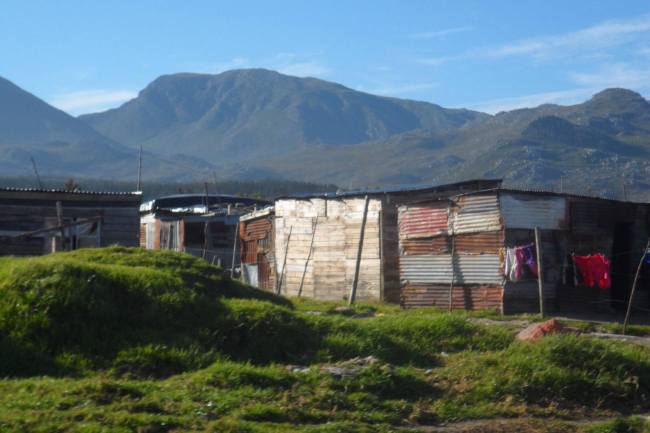
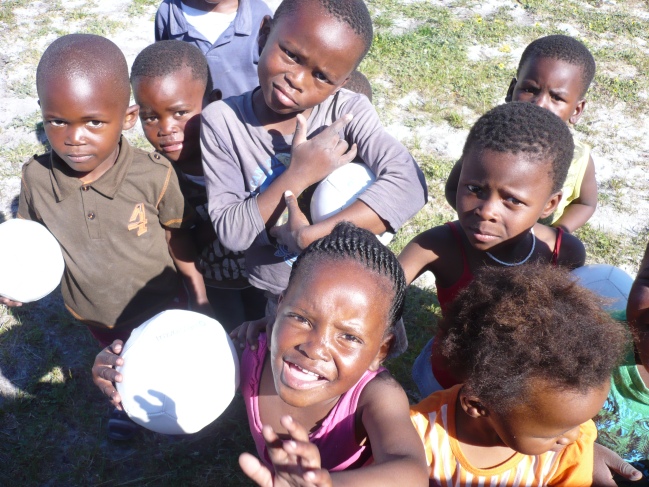
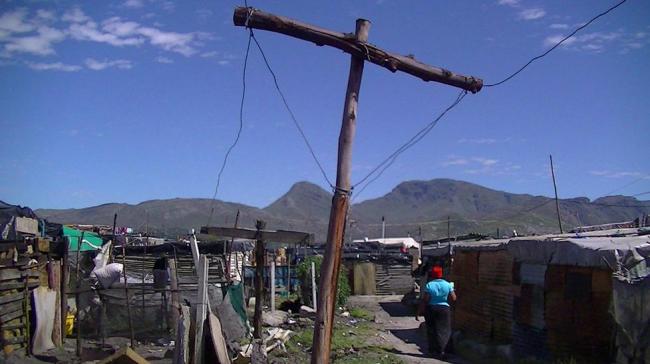
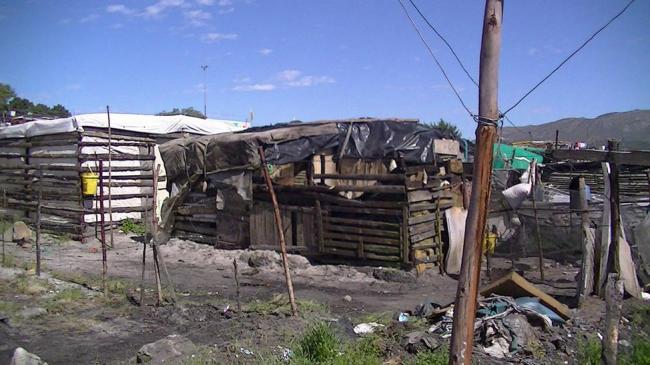
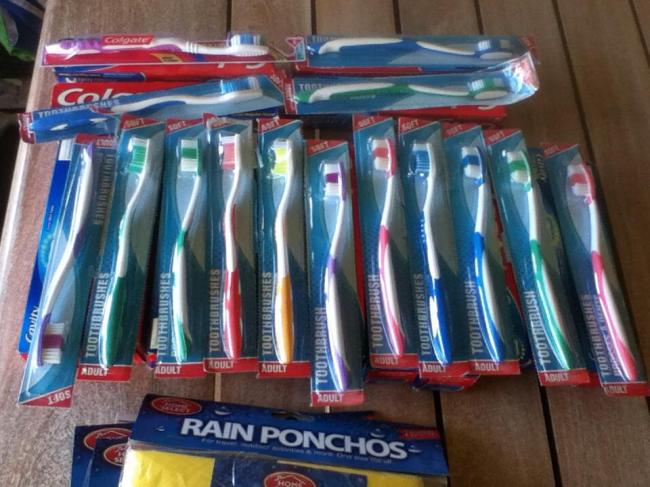


































 Even more heartbreaking is the stories we were told about how these children, as young as 2, are already accepting and taking on the stereotypes and hierarchies lived in by their parents. When twins, also “coloured” but with much paler skin than the other children, started at the school, teachers noted how the other children treated them differently. The children were afraid to argue or fight with the twins, and generally treated them as if they were superior. Apparently, the behaviours of their parents had been picked up. Old Apartheid ways being communicated to a new generation. Fortunately, the teachers have worked hard to show the kids that they are the same as one another, regardless of skin colour, but it was a massive demonstration of how big a task they face. They are really tackling the problem at the root, in childhood, but it seems like it is going to take generations of children growing up with the message, and then passing that onto their own children, before there is long-term change. But, with Graceland, there is hope; change has begun. And if you needed more hope, the head teacher of Graceland, at the forefront of the battle and doing an incredible job was in the first ever graduating class of School of Hope. A girl, given hope through a second chance at education, going on to bring hope to the lives of kids.
Even more heartbreaking is the stories we were told about how these children, as young as 2, are already accepting and taking on the stereotypes and hierarchies lived in by their parents. When twins, also “coloured” but with much paler skin than the other children, started at the school, teachers noted how the other children treated them differently. The children were afraid to argue or fight with the twins, and generally treated them as if they were superior. Apparently, the behaviours of their parents had been picked up. Old Apartheid ways being communicated to a new generation. Fortunately, the teachers have worked hard to show the kids that they are the same as one another, regardless of skin colour, but it was a massive demonstration of how big a task they face. They are really tackling the problem at the root, in childhood, but it seems like it is going to take generations of children growing up with the message, and then passing that onto their own children, before there is long-term change. But, with Graceland, there is hope; change has begun. And if you needed more hope, the head teacher of Graceland, at the forefront of the battle and doing an incredible job was in the first ever graduating class of School of Hope. A girl, given hope through a second chance at education, going on to bring hope to the lives of kids.

































